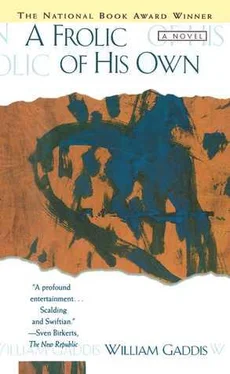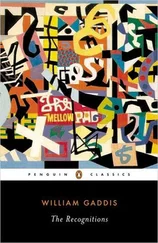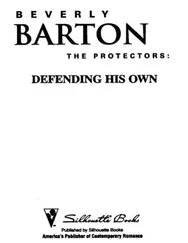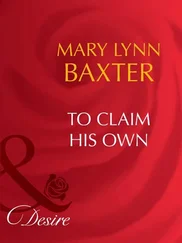MR.BASIE: Well shit.
MR.MADHAR PAI: Shall we move on?
Q We stated earlier, did we not, that anyone is free to take an idea and express it in his own fashion, hence sillybillies might be called Jowett's expression of a detail of Plato's expression of a detail of the idea under discussion, would you agree?
A Yes, all right.
Q In this vein do you recall making the distinction between protection for the expression and for the idea unless the idea is copied in a vulgar and demeaning way, when it becomes an abuse?
A Yes.
Q I am directing the witness's attention to Defendants' Exhibit 29. Will you read it please?
(Document marked Defendants' Exhibit 29 for identification as of this date.)
A Starting where, 'as he was sitting among them…'
Q To yourself please.
A I've read it.
Q Will you identify it for the record?
A Of course, yes. Yes, it's the story Glaucon tells of the shepherd Gyges in the second book of the Republic.
Q And?
A Well he's obviously, Gyges is obviously a rather low ignorant type who stumbles on a dead body in some pretty bizarre circumstances, he takes a gold ring off the dead man's finger and by accident discovers it can make him invisible, and it goes on from there to describe his adventures, his rise to power using this new, this stratagem.
Q And is Plato just telling us a story here? A sort of Arabian Nights Entertainment?
A Of course not, no. He's placing the perfectly unjust man beside the just man in his nobleness and simplicity as Aeschylus says wishing to be and not to seem good. That's Plato quoting Aeschylus and I'm quoting Plato, what's the difference?
Q The difference is exactly why we're here. Plato attributes the idea and the words to Aeschylus whom he names, whereas you have simply lifted them from Plato without ascribing them to anyone the way you've done elsewhere I might add, Camus and Rousseau and I don't know who else, now may we get on with this? Glaucon's story is employed as an expression of this idea, is that correct?
A In expressing it, yes.
Q But you are not claiming property rights in an idea then, are you?
A In certain ideas yes, when I'm talking about ideas I'm talking about art.
Q Let's take that out. We're talking about an actual thing.
A I'm talking about work, you can't divide a work of art, the idea from the technique that expresses it.
Q Well that's exactly what you're going to have to do in a court of law. The idea is an abstract form and that's not what we're here to talk about. We're here to talk about your play and I direct your attention to Defendants' Exhibit 30. Will you identify it please?
(Document marked Defendants' Exhibit 30 for identification as of this date.)
A It's, yes it's from the second act of my play, the third scene. It's a dialogue between Mr. Kane and a character named Bagby. Mr. Bagby.
Q I would like it read into the record please.
BAGBY
And why not? An't they close enough to doing it now? And do you think they keep from injustice by preference, then?
KANE
(VEHEMENTLY)
I do!
BAGBY
Ah…! And that they practice justice willingly? No, only let both of them do what they like, and you will catch your just man in the act. It's only the law that keeps him to fair dealing.
KANE
The law…
BAGBY
Yes and what is the law but a thing got up by them that fear suffering injustice, and not them that fear doing it. No, I heard a story told once of a man that found a gold ring upon a dead body, and as he wore it one evening with friends he happened to turn it upon his finger, as nervous people may do. And no sooner had he done this, than he was invisible, and his friends spoke of him as if he was gone. He found that when he turned it outward he was visible again, and turned inward no one could see him. So he got a job as the king's messenger, and with this new dodge of his he soon humped the king's wife, and before you know it he'd killed the king and seized the empire… There, with a ring such as that, now, who could keep from taking what he liked wherever he found it, walking into anyone's house and humping whoever he found there, and setting free from prison any man he might choose… Why, with two such rings, for your just man and the unjust, you could not tell them apart…
Q There is no question here of a passage from Plato being copied into your own work in slightly altered form, is that correct?
A Yes, the…
Q And as a result of these alterations, the idea has been copied in a vulgar and demeaning way, do you agree?
MR.BASIE: Wait, I'm sorry, but…
MR.MADHAR PAI: Do you have an objection?
MR.BASIE: Yes.
MR.MADHAR PAI: I won't have any more of this, Harold. You have made your objection and I am going to proceed with this examination.
Q Do you, or do you not, find the term humping a crude and vulgar term to denote sexual activity?
A I, yes that's what I…
Q I'd like you to simply answer my questions without these rambling digressions. In the passage from Plato which we have just reviewed, the translator has employed such phrases as he seduced the queen, and lie with anyone at his pleasure, to convey these activities, am I correct?
A Yes.
Q Activities which in your own rendering of the passage take the form of humping, am I correct?
A I, yes.
Q Now you stated earlier, did you not, your belief that an idea is protected in its expression against being copied in a vulgar and demeaning way?
A What I meant was…
Q Please answer the question. Was that your statement or not?
A Yes.
Q And that you find the word 'humping1 a crude and vulgar term?
A Yes but…
Q So on the one hand you would enjoin Joe Blow from presenting what you consider a crude, vulgar, demeaning expression of an idea which you feel you have made your own, exalting it to a protected status through your own unique artistic expression, while on the other hand you have no hesitation at all in offering us a parable from one of the greatest minds in western history dressed in this manifestly crude, vulgar and hence debased version, with the temerity to label it homage into the bargain. Am I correct?
A …
Q I didn't hear your answer. Will you repeat it please?
A That's not what I meant.
Q I want an answer to the question.
A It's nearer to parody, this passage.
Q Did you understand the question? I said parable, not parody.
MR. BASIE: He's free to characterize it however he wants to.
MR. MADHAR PAI: Are you objecting? I want an answer to my question.
MR.BASIE: You asking him to characterize it as homage?
MR.MADHAR PAI: I am not asking him to characterize it as anything.
Q If you don't understand the question, say you don't. If you don't know the answer, say I don't know.
A I don't know.
Q Will you explain why it is that you don't know?
A It has to do with the subject matter, with the character. Will you let me explain?
Q I wish you would.
A Well, you see the character Gyges in Plato's story, this story told by Glaucon that is, Gyges is a crude unlettered shepherd, earthy, greedy, sly, fundamentally dishonest like the character Bagby, Mr. Bagby in the play, so he uses vulgar language. It's as if Gyges were telling his story himself instead of Glaucon, he'd use vulgar language, so it's not me using vulgar language, it's Bagby. The character Bagby.
Q Did you understand the question?
A We're talking about characters denned through their dialogue, aren't we? The three levels, from good men to bad, it's all right there in the Poetics. They're either above our level of goodness like the characters of Homer, like my character Mr. Kane, or about our own level, that's the hero the audience identifies with here, or beneath it like Bagby, Mr. Bagby, who's beneath our level of goodness like the characters of Nicochares, who wrote the Iliad…
Читать дальше












